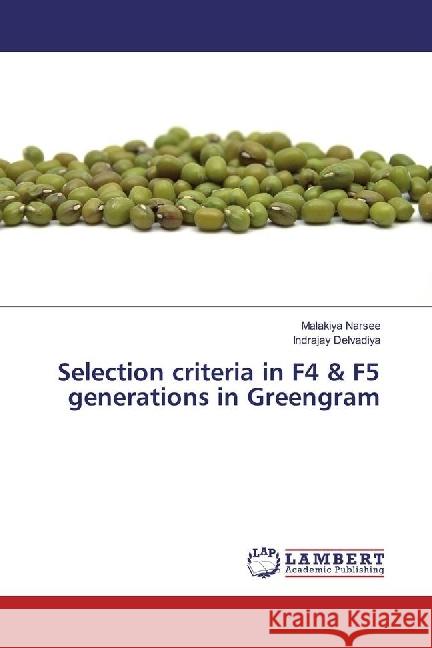Selection criteria in F4 & F5 generations in Greengram » książka
Selection criteria in F4 & F5 generations in Greengram
ISBN-13: 9786202057615 / Angielski / Miękka / 2017 / 124 str.
The present investigation was carried out in Randomized Block Design with three replications at Instructional Farm, Department of Agronomy, College of Agriculture, JAU, Junagadh during summer and kharif 2016. A set of 20 F4 and its subsequent F5 segregating generations along with 8 parents of mungbean were utilized to estimate genetic variability, character association, path analysis and selection indices. The segregating F4 generations was obtained from Research Scientist (Chickpea), Pulses Research Station, Junagadh Agricultural University, Junagadh. From the study of genetic variability, it can be concluded that there is a chance to select appropriate phenotype for higher seed yield. This can be done due to the ample variability present in the material studied which would be more rewarding for improvement of seed yield in mungbean. Study of character association and path analysis clearly indicated that the number of pods per plant was the most important yield contributing character. Number of clusters per plantand number of seeds per pod traits were of secondary important yield components.











